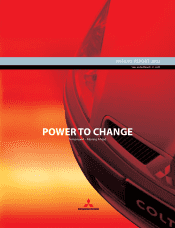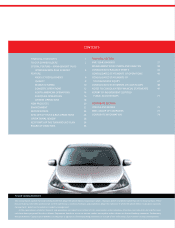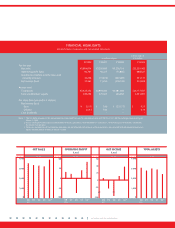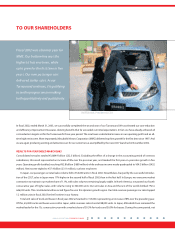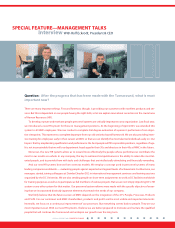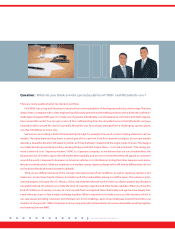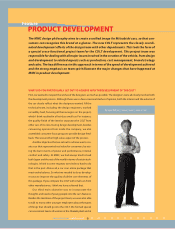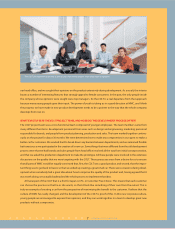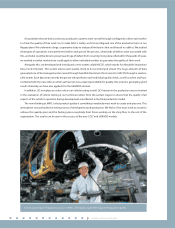Mitsubishi 2003 Annual Report Download - page 6
Download and view the complete annual report
Please find page 6 of the 2003 Mitsubishi annual report below. You can navigate through the pages in the report by either clicking on the pages listed below, or by using the keyword search tool below to find specific information within the annual report.
4
ANNUAL REPORT 2003 POWER TO CHANGE
Question: After the progress that has been made with the Turnaround, what is most
important now?
There are many important things. First and foremost, though, is providing our customers with excellent products and ser-
vices. But this is dependent on our people having the right skills, so let me explain more about our actions in the crucial area
of Human Resources (HR).
To develop, nurture and motivate people personnel systems are critically important to any organization. Last fiscal year,
we introduced a new HR system for those in management positions. At the beginning of April 2003, we extended this
system to all MMC employees. We now conduct a complete 360-degree evaluation of a person’s performance from objec-
tive viewpoints. This represents a complete departure from our old seniority-based framework. We are also providing inten-
sive training for employees early in their careers at MMC so that we can identify the most talented individuals early on. Our
hope is that by emphasizing qualification and performance the best people will fill responsible positions, regardless of age.
It is not inconceivable that we will see department heads aged in their 30s and directors in their 40s at MMC in the future.
Moreover, the new HR systems allow us to reward more effectively the people whose performances contribute the
most to our results as a whole. In any company, the key to sustained competitiveness is the ability to retain the most tal-
ented people, and to provide them with tasks and challenges that are intellectually stimulating and financially rewarding.
And our new HR systems borrow from overseas models. We employ a concept used in personnel systems of many
leading companies worldwide — evaluating people against expected and agreed levels of achievement. Furthermore, our
managers started joining colleagues at DaimlerChrysler (DC) in international management seminars and training sessions
organized by the DC University. We are also sending people on short-term assignments to work at DC facilities worldwide
for training purposes as well as to participate as full members of various projects. But we are not simply importing DC’s HR
system or any other system for that matter. Our personnel system reforms were made with the specific objective of ensur-
ing that we incorporated distinctly Japanese elements that match the needs of our company.
We firmly believe that the future success of MMC depends on the integration of the 4 Ps: People, Processes, Products
and Profit. For our customers and MMC shareholders, products and profit are the most visible and important elements.
Internally, we focus on a continuous improvement of our processes. But everything comes back to people. They are our
most important asset. With our new HR systems, I believe we are better prepared to motivate and nurture the qualified
people that will continue the Turnaround and underpin our growth over the long term.
SPECIAL FEATURE—MANAGEMENT TALKS
Interview With Rolf Eckrodt, President & CEO

